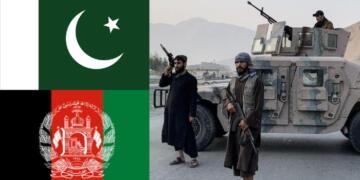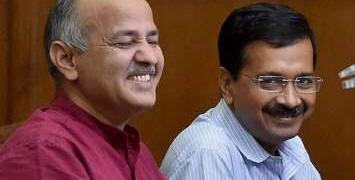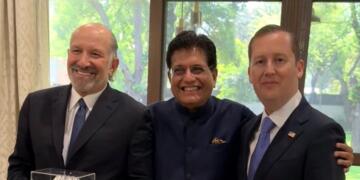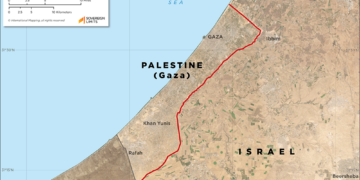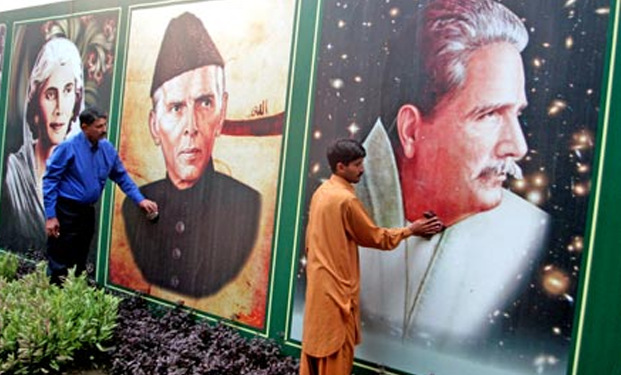What happens when a poet-cum-philosopher, A student leader and a flamboyant, but incorruptible orator align together? A new nation takes birth.
The poet was Muhammad Iqbal, who transformed from being an Indian nationalist to an Islamist post his life in London. The man who translated Gayatri Mantra into Urdu was the first one to conceive a separate nation for the Muslim ‘minority’. His grandparents were Kashmiri Pandits and his father ‘Rattan Lal’ served as revenue collector and was found siphoning funds (How similar to the first family of India with roots in Kashmir experting the same trait of usurping public money). The Afghan governor gave him a chance to become a Muslim with the other choice being Zannat. The wise Rattan chose life and married one Punjabi lady Imam Bibi. As is the norm, the first generation offspring of converted turning more fundamentalists than the original ones, their son Muhammad Iqbal became ‘Allama Iqbal’ and was the first to seek a ‘separate country’ for the Indian Muslims.
However, he was a really good thinker. He tried to analyse the growth of secular states in Europe and tried to synthesize a solution for the purported problem of ‘Muslim Minority in Hindu India’.
True to the history, all his predecessors were not so much favouring the separation from the Hindus. Sir Syed Ahmed Khan explained in 1884 gathering in Gurudaspur that all people inhabiting one country are designated by the term “One Nation”. He gave example of Afghanistan inhabited by various tribes and the term Persian denoting all types of people of Iran. Sir Syed said that every inhabitant of India, no matter what his personal belief, can be called a Hindu by virtue of his belonging to Hindustan.
Those were the days after the 1857 revolution, in which the rule of Mughals was effectively put to a stop. As Muslims dominated police and defence till that time, Brits were engaging Hindus in many government jobs causing a concern to the Muslim elite of that time. The rise of ordinary Hindus, who were the subjects during their rule, could not be digested by them. Added to them were the merchant class Muslims who started seeing a rising competition from Hindus. Still, till the time the new century arrived, none had thought of separating from their Hindu brethren, for despite practising a different religion, in many places common Muslims still followed the Hindu customs and attire. But, as evident from the writings of Wali Khan, British were using everything that is in their disposal to divide both communities. Still there were people like Jinnah, who was inspired by Gopalkrishna Gokhale and was defending Bal Gangadhar Tilak in the court of law, despite their religious and ideological differences. Then there was the ‘Frontier Gandhi’ Khan Abdul Gaffar Khan.
If one observes, the London effect would become too obvious. Though it was the same London that affected the thoughts of the likes of Nehru, Jinnah and Ambedkar, it also affected the mind of Muhammad Iqbal and Rahmat Ali. If one sees the current trend of rising Islamism in Britain in tune with the global rising, it is more effective in Britain, because British themselves established the necessary infrastructure, almost a century ago.
It was on 29th December, 1930,Iqbal spoke about the need of a separate Muslim nation, in the Presidential Address in the 25th session of All India Muslim League in Allahabad. He laid foundations by distinguishing between Christianity and Islam. He explained the fact that unlike Christianity treated in Europe as a monastic order, the Prophet’s religious experience is an individual’s experience creative of a social order. He believed that religion is a power of the utmost importance in the life of individuals as well as States, and Islam is itself Destiny and will not suffer a destiny. He says it is his duty, according to the teaching of the Quran, even to defend their places of worship, if need be. But, he states in the same breath ‘Yet I love the communal group which is the source of my life and behaviour; and which has formed me what I am by giving me its religion, its literature, its thought, its culture, and thereby recreating its whole past as a living operative factor, in my present consciousness ‘.
But, he linked culture with communalism and expressed without full cultural autonomy, it is difficult to create a harmonious nation. So, it is imperative to have an exclusive Muslim nation. Then he proposed “I would like to see the Punjab, North-West Frontier Province, Sind and Baluchistan amalgamated into a single State. Self-government within the British Empire, or without the British Empire, the formation of a consolidated North-West Indian Muslim State appears to me to be the final destiny of the Muslims, at least of North-West India”.
It was after two years young Rahmat Ali released the Pamphlet in which the name PAKISTAN was first mentioned. On 28th January, 1933, he made an appeal on behalf of the thirty million Muslims living in the provinces mentioned by Iqbal. Of course, he added Kashmir to the list for the first time in the pamphlet titled “Now or Never” questioning Muslim population “Are we to live or to perish forever”. He opposed All India Muslim league as they still call India as common motherland and having ‘India’ in the name, despite propagating the nationality of ‘Millat’. He wanted to sever all tie with India to save ‘Millat’ from ‘Indianism’ and save ‘Pax Islamica’. In 1940, he released The Millat and the Mission: Seven Commandments of Destiny for the “Seventh” Continent of Dinia’ in which he proposed two more Muslim states ‘Bang-i-stan’ [including undivided Bengal &Asam] and (U)Osmanistan (Hyderabad Deccan, ruled by the Nizam).
The seven commandments are:
- Avoid Minorityism: Even if India and British offered, Muslims should not be left in India as minorities.
- Avow Nationalism: Complementing the above commandment, he states there shall be a distinct ‘national’ status to the Muslim minorities in the Hindu state (Dinia) and Hindu/Sikh minorities in the Muslim state (Pakistan, Bangistan & Usmanistan).
- Acquire Proportional Territory (taking land from Dinia in proportion to the Muslim minorities, that is controlled to the Millat) to create Siddiqistan, Faruqistan, Haideristan, Muinistan, Maplistan, Safistan and Nasaristan.
- Consolidate the individual nations: Consolidating all small states acquired in the above manner that are distributed across Dinia, Ceylone.
- Co-ordinate the nations under Pakistan – Commonwealth: Probably borrowed from the colonial rulers (an indication that even staunch nationalists/separatists are affected and amused by the ertwhile rulers), he proposes to bring all ‘ten countries (-stans)” together.
- Convert the subcontinent of India into Dinia: Liberate the soul and soil of ‘India’ from the domination of ‘Indianism’ into the domain of ‘Dinianism’
- Organise the continent of Dinia, Usmanistan dependencies into the orbit of Pakasia.
It was not only Iqbal and Ali, but few others have also pitched in to create various countries out of the British ruled India to include in Muslim -stans, ranging from Malabar to Delhi (Yes! Being a Muslim dominated city, Delhi was to go to Muslim commonwealth).
By this time, Iqbal successfully pulled back Jinnah into mainstream Muslim politics and Jinnah started the fight for a Pakistan and was successful in mobilising majority of Muslims.
Yet, there were many nationalists in Muslims still with Gandhi led Congress. And of course, relations between separatist Muslim leaders and Congress leaders like Nehru, Ambedkar, Rajendra Prasad had soured. Then, Rahmat Ali underestimated the ‘Indianism’ for he took only the soft aspect of it to the task. Like for everything else, even the Indianism had two faces the other being a selfish one. Being the land to various cultures and languages, populated with various tribes of people it was difficult for those Muslims, to accept the superiority of the Punjabi or Western Muslims. Even today, given a chance every Indian would be ready to become the Prime Miniter, just for the sake of the heck of that. So, it was natural for many leaders to emerge within the Muslim community to oppose the plans of Pak-Asia.
Huseyn Shaheed Suhrawardy was from Bengal and mooted the idea of independent Bengal. He got support from none other than Sarat Chandra Bose in this effort. However, the British were not too interested in creating many nations and were considering only two nations, one for Muslims the other being for Hindus, Sikhs and others. And Jinnah, expecting the new nation soon had got Pakistan Airlines established in 1946 itself and registered its office in the capital of Pakistan – Culcutta. Only Khwaja Nazimuddin, Nawab of Dacca who preferred Dacca was not enthusiastic in asking Calcutta to be included in East Bengal. Had the entire Bengal went to Pakistan, Suhrawardy, immensely popular in Bengal could’ve become easily the first prime minister of Pakistan.
However, after the riots of Noakhali in 1946, it was Syama Prasad Mookerjee who started the idea of partitioning Bengal, as Hindus were fleeing the place dominated by Muslims. He was seconded by Sarat Bose. When Bose spoke to Gandhi and Nehru, he was advised to discuss the issue with Patel. Iron man laughed at Bose and said Calcutta will be with India. One point to note and study was the way Radcliffe awarded Muslim majority district of Murshidabad to India so that India would have control over the waters of the holy river. As a compensation, Khulna district with Hindu majority was given to Pakistan.
By 1944 Congress lost rights to speak on behalf of Sikhs also and Akalis, seeing the increasing probability of Pakistan, have demanded for partioning Punjab. But, the religious profile of Punjab was not too sharp and in no district Sikhs or Muslims were in majority and only the total of Hindu-Sikh majority existed. Even in Amritsar, Muslims accounted for 47% of population at the time of independence. If violence preceded independence in Bengal, it followed independence in Punjab.
All the while, Hyderabad and Kashmir were going to remain in the control of erstwhile ruling families. Realising the size of the new nation dwindling with each passing day, on 4th May 1947 Jinnah rejected the attempts to truncate the nation that was to be born. He rejected the need to bifurcate Punjab and Bengal, despite the Noakhali massacre that was often dubbed as ‘Genocide of Hindus’. And the partition of these two states was however, justified if one looks into the past with retrospect.
It was during this rejection statement, he professed that Muslims would be getting a truncated or mutilated and moth-eaten Pakistan.
Yes, Jinnah was a true secular leader. But, then he was influenced by the the Islamist Muhammad Iqbal and the theorist Rahmat Ali. Jinnah was the man who could materialize Pakistan that was conceived by Rahmat Ali, characterised by Iqbal. However, the truth is even his first speech as the head of the state of Pakistan from its capital Karachi was truncated in their official records. Instead of a secular nation envisaged by its Quaid-e-Azaam, Pakistan became world’s first Islamic republic. Even here, it was not the type of the Islamism imagined by Iqbal, but a fundamental and retarded version. As for the dreams of Rahmat Ali, though the Pakistan was smaller than the one proposed by him, it became even smaller with the secession of East Pakistan. The way Balochs are aspiring for freedom and the inability of Pakistan to remain a nation is again in focus.
By all means, the love of western philosophies and continuous endeavors to get appreciation and recognition as equals in the eyes of Arabs – the original Islamists was the primary reason that caused the division of India. Of course, the guilt arose out of the past sins committed during the Muslim rule of India only helped the cause.
After all, what goes around comes around. And that was the philosophy of India, even from those ancient days when the other prophecies were not around.
https://themusimtimes.info/2013/07/27/history-the-hindu-origins-of-allama-sir-mohammad-iqbal/
http://www.columbia.edu/itc/mealac/pritchett/00islamlinks/txt_rahmatali_1933.html
http://www.columbia.edu/itc/mealac/pritchett/00litlinks/naim/ambiguities/13iqbaljinnah.html
http://www.columbia.edu/itc/mealac/pritchett/00islamlinks/txt_iqbal_tojinnah_1937.html
http://www.columbia.edu/itc/mealac/pritchett/00islamlinks/txt_iqbal_1930.html
http://islamicblessings.com/upload/The%20Reconstruction%20Of%20Religious%20Thought%20In%20Islam.pdf
http://www.nationalarchives.gov.uk/education/resources/the-road-to-partition/jinnah-partition/
http://islamicblessings.com/upload/The%20Reconstruction%20Of%20Religious%20Thought%20In%20Islam.pdf
https://archive.org/details/indiadivided035300mbp
http://www.telegraphindia.com/1141217/jsp/opinion/story_3868.jsp
http://www.academia.edu/7801480/The_Sikhs_and_the_Partition_of_the_Punjab
http://bengalpartitionstudies.blogspot.in/2008_08_01_archive.html


